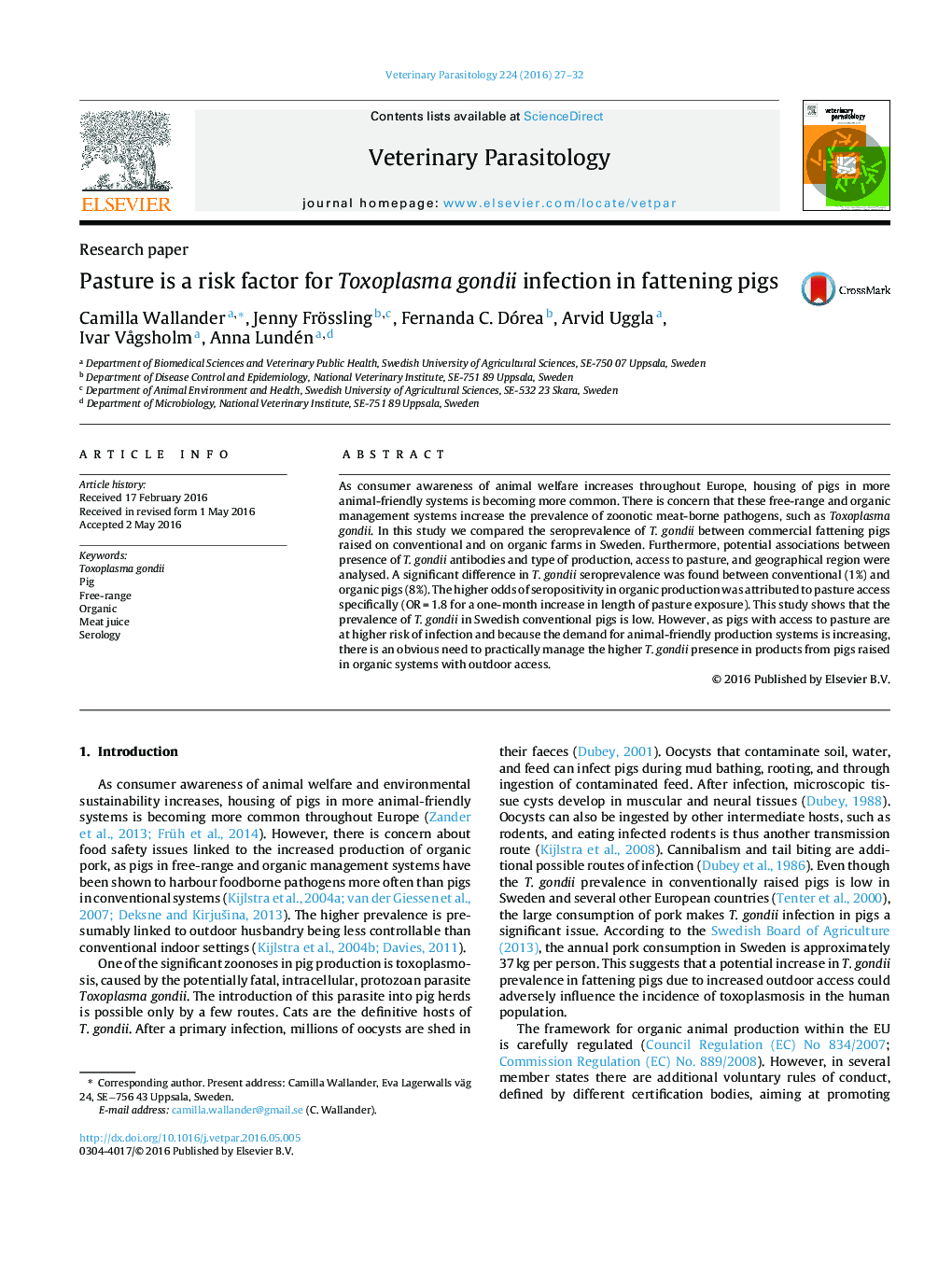| Article ID | Journal | Published Year | Pages | File Type |
|---|---|---|---|---|
| 2469817 | Veterinary Parasitology | 2016 | 6 Pages |
•The seroprevalence of Toxoplasma gondii in Swedish fattening pigs is low.•Infection with Toxoplasma gondii is more common in free-range pigs with pasture access than in pigs raised indoors.•The odds of Toxoplasma infection in pigs increases with time spent on pasture.
As consumer awareness of animal welfare increases throughout Europe, housing of pigs in more animal-friendly systems is becoming more common. There is concern that these free-range and organic management systems increase the prevalence of zoonotic meat-borne pathogens, such as Toxoplasma gondii. In this study we compared the seroprevalence of T. gondii between commercial fattening pigs raised on conventional and on organic farms in Sweden. Furthermore, potential associations between presence of T. gondii antibodies and type of production, access to pasture, and geographical region were analysed. A significant difference in T. gondii seroprevalence was found between conventional (1%) and organic pigs (8%). The higher odds of seropositivity in organic production was attributed to pasture access specifically (OR = 1.8 for a one-month increase in length of pasture exposure). This study shows that the prevalence of T. gondii in Swedish conventional pigs is low. However, as pigs with access to pasture are at higher risk of infection and because the demand for animal-friendly production systems is increasing, there is an obvious need to practically manage the higher T. gondii presence in products from pigs raised in organic systems with outdoor access.
